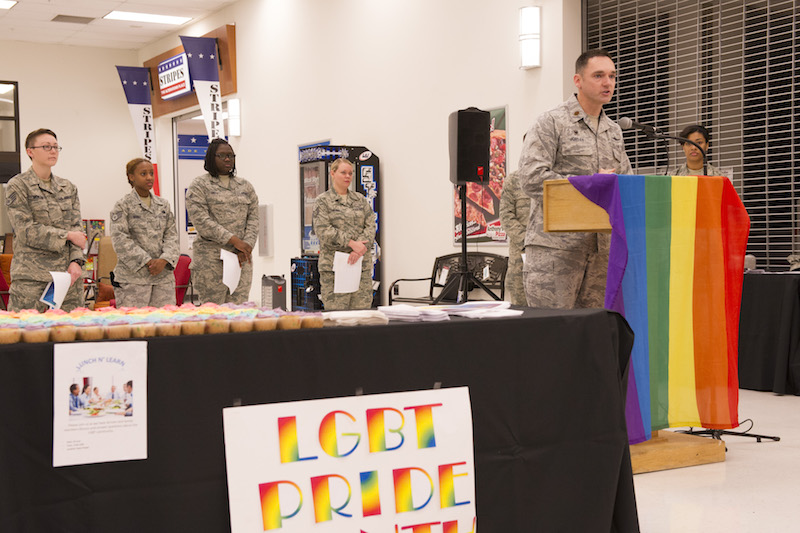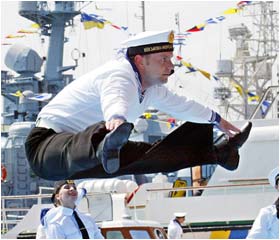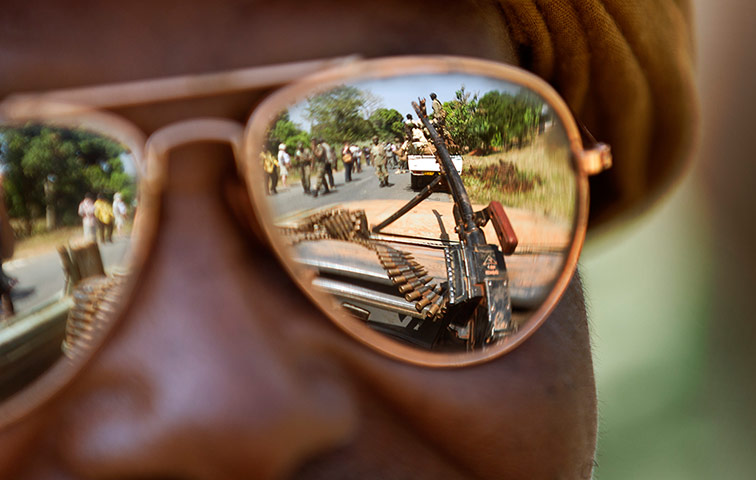In 2011, the Obama administration repealed the controversial Don’t Ask Don’t Tell (DADT) policy that had been part of the uniform code in the United States, and which prevented openly gay, lesbian, and bisexual individuals from serving in the armed forces. A clear example of institutionalized discrimination, the policy was shown to be not only expensive, but unsubstantiated. Prior to the repealing of DADT, of all NATO members, the US and Turkey were the only two member states that had this type of discriminatory policy. As reference, Canada has allowed openly identifying gay, lesbian, and bisexual individuals to serve in the armed forces since 1992.
In Turkey, military service is mandatory for all Turkish men. However, if you are mentally ill, disabled, or a homosexual, you can be excused from duty—but not without difficulty. For instance, a gay man may experience the possibility of being extorted. Being a conscript maintaining to be gay would lead to the request of providing photographs of oneself in women’s clothing, or—more humiliating—submitting explicit photos that demonstrate the conscript as the passive partner. The risk lies in these photos being in the possession of another person who can ultimately use them for whatever purpose they wish, such as extortion or blackmail. Prior to the repeal of DADT, members of the US armed forces did not fare better. Living a double life was common, as was jumping through hoops to care for their partner during a health crisis without drawing suspicion. If someone were to be suspicious and report a solider, it could lead to that soldier’s discharge from the armed forces—sometimes a dishonorable discharge.
For the military being an institution that retains people based on ability and principles of meritocracy, discrimination against a characteristic unrelated to one’s capabilities may reduce its effectiveness. Following the controversies surrounding repealing DADT, British Army Colonel Mark Abraham was quoted as saying that sexual orientation did not indicate the quality of a solider; and that when Britain removed the ban on gay and lesbian members from serving in 2000, there was no notable change. In fact, the Colonel went on to say that the percentage of time that a gay or lesbian solider spent putting in effort to evade suspicion and reporting was now devoted to work—therefore becoming more productive than previously.
While NATO does not have a specific protocol with respect to the roles that LGBT perspectives play, NATO does recognize that standardization can be operationally effective and economical when a certain set of standards are shared amongst the Alliance. There have been workshops, such as the one that took place in Sweden, called the NATO LGBT Working Group, where promotion of LGBT inclusion and equality were discussed.
It is unclear whether a prospective NATO member’s attitudes toward LGBT perspectives carries weight during consideration for acceptance into the Alliance. Perhaps it should, and given that NATO’s function evolves as necessary, it still nonetheless pursues dialogue with member nations on a wide range of political and security-related issues. The importance of stability and cooperation could not be emphasized enough, where promoting democratic values and reforms are also part of the mission. This has the effective potential to shape policies and manage crises for member states moving forward, particularly those that are still in the process of social transition.
Newest NATO member, Montenegro, a country of less than a million people, has experienced turbulence on the path to social egalitarianism. Although the country has expressed its interest in committing to Western standards and values, the social inclusion and acceptance of LGBT individuals remains lacking in the Balkan state. The first ever Pride Parade in 2013 was met with violent opposition, hundreds shouting “Kill the gays,” and police intervention. The government has made efforts to provide protections for the LGBT community, and allows gay and lesbian individuals to serve in the military. Despite the government’s efforts, the religious convictions of the country can leave the nation divided on LGBT issues. Whether LGBT rights and protections are linked to Western values in Montenegro are not conclusive, but it may be assumed that sentiments expressed by its citizens might be projected onto NATO.
Interestingly, the margin between supporters and opponents of Montenegro’s accession into NATO by its citizens was split: 39.5% of the population for, and 39.7% against. The possibility of political upheaval and retaliation against NATO membership may be low, but that doesn’t rule out that sensitive issues like LGBT rights and progress could create wedge issues and instability in the member state; particularly as west vs east beliefs embolden. It would be worthwhile to consider the role of religion in the context of geopolitics and foreign policy.
Eastern Orthodoxy is one of the largest Christian denominations, is practised predominantly in countries that were part of the Eastern Roman Empire, and incorporates elements of Greek, Slavic, and Eastern European culture. Western Christianity is more geographically varied, and includes Catholic and Protestant denominations from Western Europe.
Religious affiliation plays a noticeable role in the perception of alliance and defence, as demonstrated the findings of a multi-nation WIN/Gallup International poll in 2017. NATO member states that are majority Orthodox Christian—like Bulgaria and Greece—opted for Russia; while Belgian, for instance, choose its Western European counterparts France and the UK. The poll hints that there broadly exists a divide between Western Christianity alliances and Eastern Orthodox ones.
Eastern Orthodox Christianity is less tolerant of LGBT inclusion and more phobic than Western-based denominations. Whether NATO can bridge this gap, or at least mitigate it, could be imperative in moving forward to prevent deepening the divide.
The position hasn’t been formally announced, but there have been rumours that President Trump has named Richard Grenell, an openly gay and religious man, to be the US Ambassador to NATO. A former spokesman at the United Nations, his appointment has the potential to influence prospective and current NATO members’ approach to LGBT rights and equality within the military, by serving as an example of both faith and advocacy.
Photo: U.S. Air Force Maj. Mickey Jordan, 354th Communications Squadron commander, speaks during a Lesbian, Gay, Bisexual and Transgender Pride Month kick-off event June 2, 2014, Eielson Air Force Base, Alaska. Jordan gave opening remarks at the ceremony, reflecting how monumental celebrating LGBT Pride Month was to the wing. (2014), by Senior Airman Joshua Turner via Pacific Air Forces. Public Domain.
Disclaimer: Any views or opinions expressed in articles are solely those of the authors and do not necessarily represent the views of the NATO Association of Canada.




